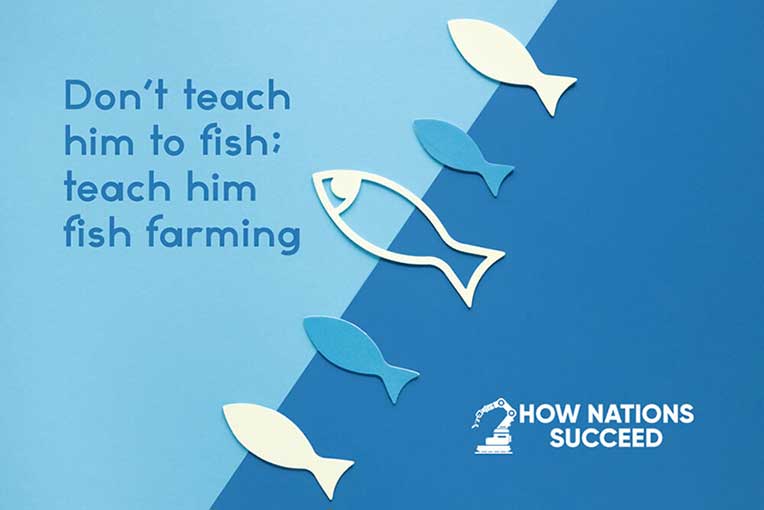“Give a man a fish, and you feed him for a day. Teach a man to fish, and you feed him for a lifetime” goes the popular edict.
Yes, teaching him how to fish is better than giving him a fish but it still does not make him a sustainable living. By learning how to fish, he will be a hunter gatherer as his ancestors in the stone age.
For a development economist, the better alternative is to teach him how to fish farm. Then he contributes to himself and society more than as a fisher. A fish farmer increases the global fish production— hopefully without destroying the ecological balance. That is, the societal economic return is higher than fishing.
Malthus –yes, the person who coined names economics as the dismal science— had thought the human race was doomed because agricultural land was limited while human population kept growing. When he died in the first half of the 19th century, the world population was lightly above one billion or one-seventh of today. His concern probably came because the British population quadrupled during the 19th century.
Time proved Malthus wrong— very quickly. The main reason was people opted the like of fish farming rather than fishing. And, industrialization which was the concrete source and result of technological progress helped the fact that the knowledge revolution made life easier and possible for billions of people.
But the world still has a problem (actually many problems as we all know). Not everybody is equal as the pigs remarked in George Orwell’s animal kingdom. Many countries are poor; poorer than others. In fact, the majority of the world’s population is significantly poorer than a small handful.
The rich countries also happen to be the industrialized ones. And, that is not a coincidence. The poor countries trying to catch up has one necessary (but not sufficient) condition to fulfill: successful industrialization.
